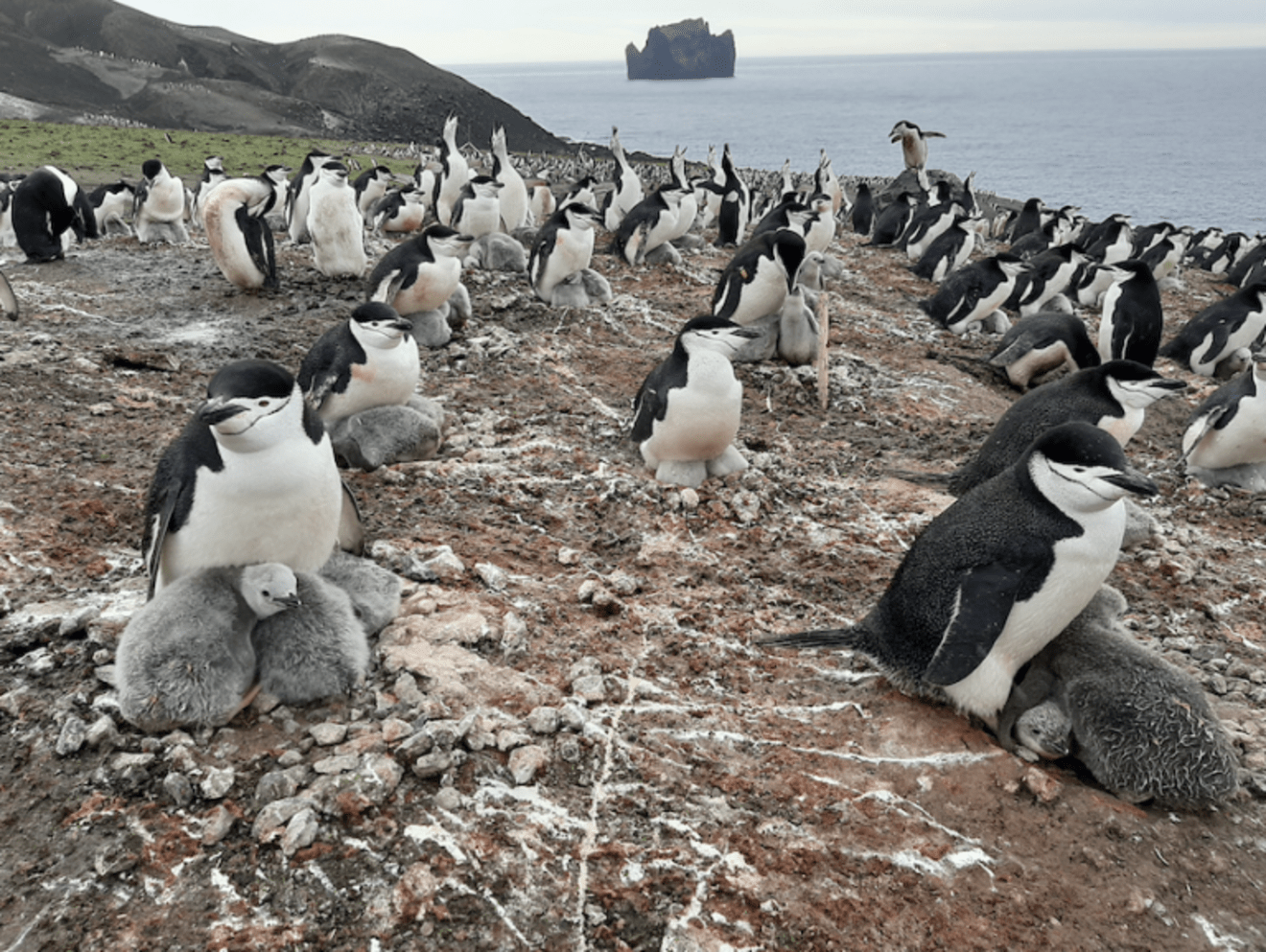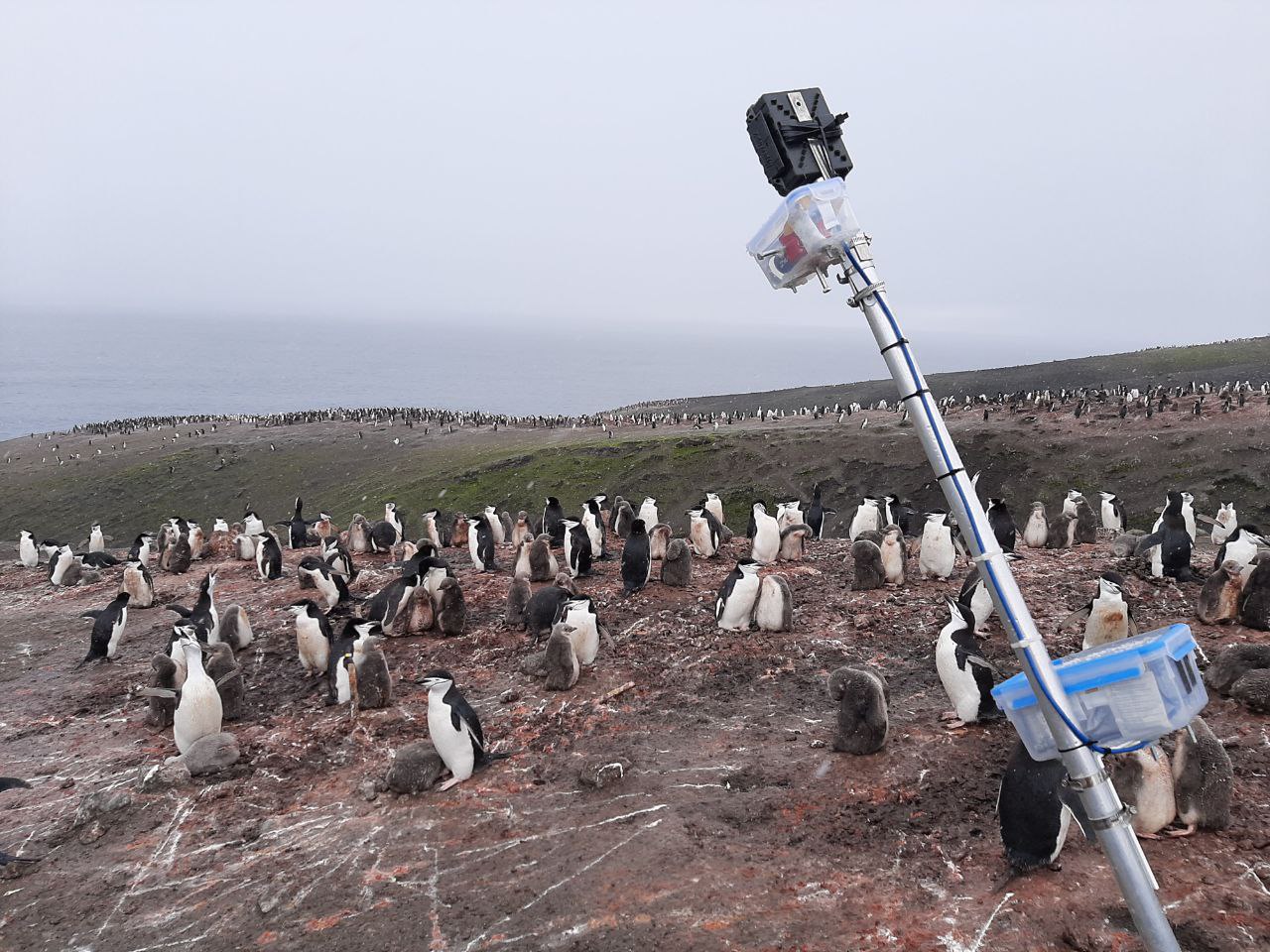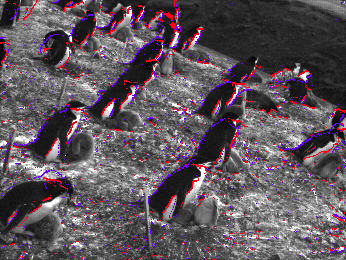SCIoI in Antarctica! SCIoI collaborated with an Oxford University expedition to observe penguin behavior
What do penguins have to do with SCIoI? Thanks to a collaboration between SCIoI PIs Alex Kacelnik and Guillermo Gallego, SCIoI was able to send event cameras all the way to Antarctica and help researchers install them there in order to study interactions between chinstrap penguins. Can’t get more remote than that, can it?
Penguins spend most of their lives at sea, but breed on land during the Antarctic summer, which goes from October to February. This is a good time of year for researchers to observe the birds and study their interactions. Our PI Alex Kacelnik participates in a long-term Oxford University study of penguin behavior and ecology. In his last trip to Antarctica last November, he collaborated with Guillermo Gallego, also a SCIoI PI, who provided the team with event-based cameras in order to continuously record life at an Antarctic penguin colony.







